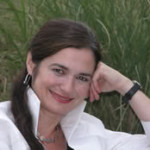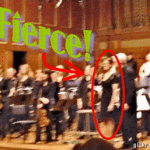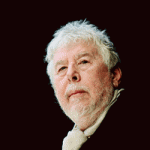Boston Symphony Orchesra featuring Bryn Terfel: Music of Richard Wagner, Saturday, October 1, 2010
Cantata Singers Chamber Series: Music of Ralph Vaughan Williams, Sunday, October 2, 2010
I didn’t expect to find much of a common thread between the two concerts I attended this past weekend, other than the fact that singing was involved. The contrasts were clear: the outsize grandiosity of the Wagnerian orchestra (Eight horns! Four harps!) versus the intimate chamber setting of the Vaughan Williams; dramatic bombast versus pastoral loveliness; mythic deities versus Vagabonds and Merry Wives; nineteenth century versus twentieth; German versus English.
And yet, these two programs illustrated what it means to love and live in music in profound and uncannily unified ways.
The weekend featured performances by singers at varying points on the music-professional spectrum, from international opera superstar Bryn Terfel, to local stars drawn from the Cantata Singers choral roster, who are active in music education and media in addition to their own impressive resumes as soloists. It was fascinating to see how each singer tackled the soul-rattling challenge of standing onstage in front of an audience with nothing but their voices to shield them from scrutiny.
Of course, every kind of musical performer puts themselves out there, but we often have props to mediate the nakedness of the experience. Instrumentalists have a hunk of wood or metal to hang onto, and plenty to do with their hands – heck, pianists and organists like me have large pieces of furniture to hide behind. But singers just have a body, and it can be surprisingly difficult to figure out what to do with the crazy thing, especially when singing from memory, unamplified, with no folder, music stand, or microphone to serve as a musical worry stone. What’s more, pesky composers will often write long stretches of accompaniment where the singer is silent, and has to figure out what to do while standing there waiting for either their next entrance or the merciful end of the piece.
In contrast to his commanding presence while in character, McDoc and I both noticed that he shifted to an unassuming graciousness once the music was over, always turning to face the instrumentalists as Maestro Levine acknowledged sections and individuals. He almost seemed reluctant to fully bask in the audience’s rapturous response, and to return to the stage as the ovations continued. McDoc, being more of a class-agitating rabble rouser than I am, attributes this to Terfel’s background as a farmer’s son. But we both agreed that when he started singing, it was clear he was doing what he was born to do.
The Vaughan Williams program on Sunday showcased the soloists of Cantata Singers in a wonderful variety of expressive modes. I don’t think a savvy music lover could be faulted for expecting a Vaughan Williams song recital to be a lovely yet fairly monochrome parade of one singer after another presenting two or three shades of nostalgia and melancholy. But on this occasion, we were instead treated to a dazzling palette, touching upon so many fundamental elements of human experience.
Baritones David Kravitz and Alan McLellan conveyed the longing for home in “Linden Lea” and the Songs of Travel; the alternating joy and heartache of love were amply represented, notably by soprano Lisa Lynch in “Goodbye” from Along the Field, and mezzo-soprano Carola Emrich-Fisher in “Tired” from Four Last Songs. The pitfalls of enmity and avarice were searingly conveyed by soprano Angelynne Hinson in “The Song of Vanity Fair,” from Pilgrim’s Progress, and tenor Jason Sabol in “A Poison Tree” from Ten Blake Songs.

Mrs. Page and Mrs. Ford discover they have received identical love letters from John Falstaff (photo: Miss Music Nerd)
The first page of Cantata Singers’ season program book (an edifying document worth the price of admission in itself) features a quote from Vaughan Williams that includes these words:
Why Do We Make Music? …we do not compose, sing, or play music for any useful purpose. It is not so with the other arts: Milton had to use the medium of words whether he was writing Paradise Lost or making out his laundry list; Velásquez had to paint both for his Venus and to cover up the dirty marks on his front door. But music is just music, and that is, to my mind, its great glory.
I confess that I sometimes feel jaded, skeptical and world-weary; I wonder if this rather ridiculous profession of music is at all useful or worthwhile, or if it’s just a luxury, an expensive hobby that doesn’t feed the hungry or cure the sick. (Just ask McDoc about my existential angst – he deserves a medal for putting up with it!) But when I manage to get my butt on the piano bench or in a concert seat and shut off my monkey mind for a while, I’m re-converted. The soul has to be fed, too, and it’s a musician’s job to do so, both for ourselves and our audiences – everyone for whom life wouldn’t make sense without it.









I do amplified voice-and-guitar; I recently realized that if you don’t *practice* with a mike in your face, having a mike in your face can be really distracting and force you into odd postures that make it harder to sing. In short, the closer my practice environment is to my performance environment the better the performances work, especially when it comes to body language.
I’ve been thinking of building a stage in one corner of my living room, complete with mike stand, bar stool and random cabling strewn about. 🙂
Good point. I’ve heard that they say in the Marine Corps, “You’ll fight like you train, so train how you want to fight!” or something like that… 😉
I adore how you recognise the need to be fully present as a singer – it’s absolutely true! In a way the music helps us do this, but it takes a special kind of performer to fully intend every single note (and rest) in order to captivate your attention as beautifully as Bryn does.
And the farmer’s son thing? It’s not that he’s reluctant to bask, more that he’s such a generous performer that he understands that he is part of a bigger creative beast – all of the musicians deserve the praise. An ego driven singer he is not – which we’d all agree is pretty damn fine. 🙂